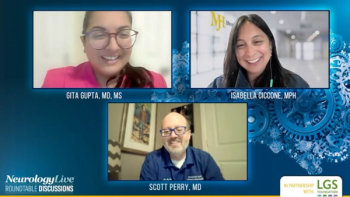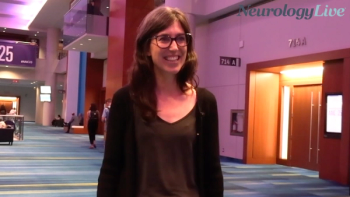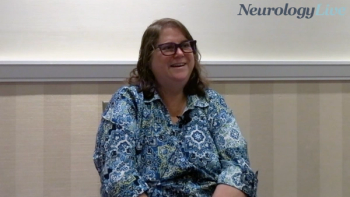
In this fourth episode, Sharon Cohen, MD, FRCPC, talked about key differences between lecanemab and donanemab in terms of eligibility requirements to the receive the treatment. Supported by Eli Lilly.

In this fourth episode, Sharon Cohen, MD, FRCPC, talked about key differences between lecanemab and donanemab in terms of eligibility requirements to the receive the treatment. Supported by Eli Lilly.

A recent trial shows that 3 infusions of stem cells significantly enhance motor function in Parkinson patients, highlighting the need for further research.

Experts noted that the Lennox-Gastaut Syndrome Foundation is a welcoming platform for collaboration, research advancement, and career development in the field. [WATCH TIME: 3 minutes]

New findings presented at the 2025 International Epilepsy Conference indicated that cenobamate may provide benefits beyond seizure control in patients with uncontrolled focal-onset seizures.

Experts discussed strategies to improve LGS clinical trial design, better understand comorbidities in rare epilepsies, and foster collaboration across stakeholders. [WATCH TIME: 5 minutes]

New trial data reveal claseprubart shows significant efficacy in treating generalized myasthenia gravis, paving the way for potential FDA approval.

Experts discussed gaps in LGS research, including biomarker development, sleep assessment, and early intervention strategies to improve diagnosis and outcomes for patients. [WATCH TIME: 6 minutes]

Here's some of what is coming soon to NeurologyLive® this week.

Experts underscored that stakeholder collaboration, including clinicians, caregivers, and industry partners, can play a critical role in advancing understanding and management of LGS. [WATCH TIME: 3 minutes]

Test your neurology knowledge with NeurologyLive®'s weekly quiz series, featuring questions on a variety of clinical and historical neurology topics. This week's topic is on RNA therapeutics for neuromuscular disorders.

AL-S Pharma's AP-101 shows promising safety and efficacy in ALS patients, paving the way for future treatments targeting misfolded SOD1 proteins.

Experts discussed initiatives to standardize data collection, expand registries, and empower families in advancing care for Lennox-Gastaut syndrome. [WATCH TIME: 3 minutes]

Take 5 minutes to catch up on NeurologyLive®'s highlights from the week ending September 5, 2025.

A recent study reveals that personalized extended interval dosing of natalizumab significantly reduces JCV seroconversion risk in patients with MS.

Experts highlighted the need for clearer treatment sequencing and improved transition of care for patients with LGS from childhood to adulthood. [WATCH TIME: 3 minutes]

The head of the neurology department at Vall d’Hebron University Hospital provided perspective on how migraine treatment might advance in the near future, highlighting emerging pathways like PACAP antagonists and long-acting toxins. [WATCH TIME: 3 minutes]

Mind Moments®, a podcast from NeurologyLive®, brings you an exclusive interview with Barry Byrne, MD, PhD. [LISTEN TIME: 15 minutes]

The laureate professor at the University of Melbourne detailed the design and promising results of the PACIFIC trial of bexicaserin, an agent in development for epileptic encephalopathies. [WATCH TIME: 4 minutes]

The vice president of scientific engagement at the Alzheimer's Association discussed new data on amyloid-targeting therapies, expanded diagnostic tools, and emerging clinical guidelines for Alzheimer disease presented at AAIC 2025. [WATCH TIME: 5 minutes]

Bio-Thera Solutions announced that its pivotal trial of BAT4406F, an anti-CD20 monoclonal antibody, for neuromyelitis optica spectrum disorder will close enrollment early after achieving statistically significant efficacy.

Amaal Starling, MD, FAHS, FAAN, associate professor of neurology at Mayo Clinic College of Medicine, shared data recently presented at AHS 2025 showing that eptinezumab extended the time between migraine attacks.

New findings from a randomized trial reported no difference in relapse rates or new T2 lesions between a personalized lifestyle app and a nonpersonalized version for multiple sclerosis.

A recent study reveals GLP-1 receptor agonists significantly reduce medication use and symptoms in idiopathic intracranial hypertension patients, suggesting a promising management strategy.

Eisai and Biogen seek FDA approval for a convenient, at-home Alzheimer’s treatment option, enhancing patient flexibility and reducing costs.

At AAIC 2025, the associate professor in the Department of Psychiatry at McGill University talked about the strengths and limitations of PET and blood biomarkers for Alzheimer disease. [WATCH TIME: 5 minutes]

The director of the Neuroethics Program at Cleveland Clinic discussed the evolving role of ethics in neurological clinical trials, highlighting skill development, safeguards, and patient-centered decision-making.

Semaglutide significantly reduced the risk of heart attack, stroke, and death compared to tirzepatide in patients with obesity and cardiovascular disease.

The physician assistant specializing in Parkinson disease talked about the shared decision-making process when discussing advanced therapies for movement disorder care with patients. [WATCH TIME: 3 minutes]

Impaired kidney function significantly increases the risk of recurrent ischemic stroke, highlighting the need for tailored treatment strategies in high-risk patients.

The nurse practitioner in the Center for Movement Disorders & Neurorestoration at the University of Florida discussed clinical experiences with deep brain stimulation for atypical MS tremor and PD. [WATCH TIME: 5 minutes]